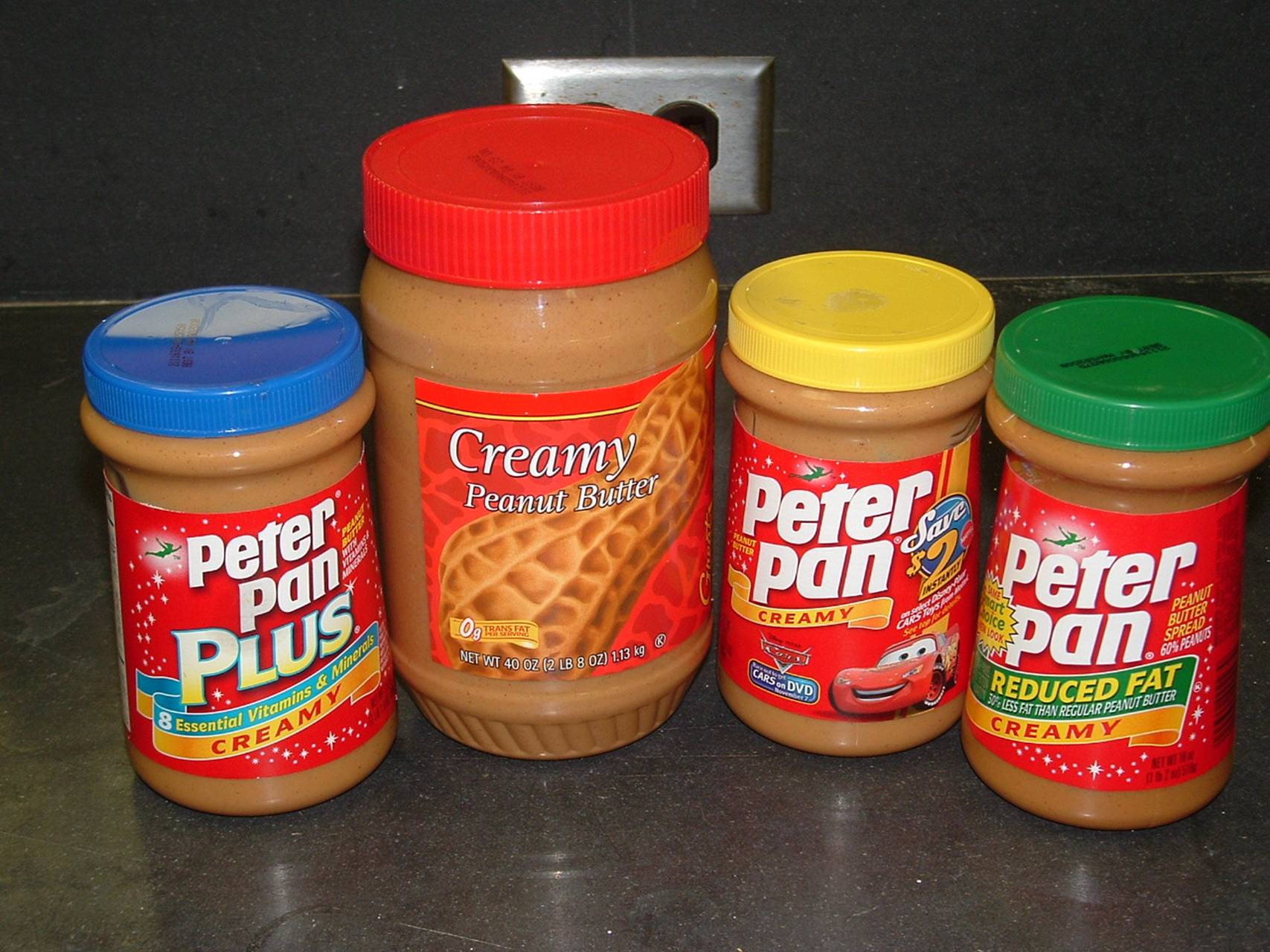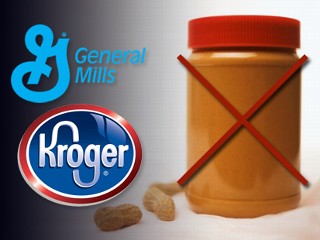Shelly Awl, a clerk at a gas station on Cheshire Bridge Road in Atlanta, told The Atlanta Journal-Constitution yesterday,
“It’s so confusing. I wish they would communicate better what is safe and what is not.”
.jpg) At a gas station in North Fulton, Karan Singh eyed with suspicion a pile of energy bars, cookies and snacks that had been laid at the check-out counter for purchase, telling a customer,
At a gas station in North Fulton, Karan Singh eyed with suspicion a pile of energy bars, cookies and snacks that had been laid at the check-out counter for purchase, telling a customer,
“I don’t think I should sell these to you. These might not be good.”
While many stores — particularly major supermarkets — appear to be keeping up with the recalls, smaller stores seem to be less consistent, according to some spot checks by The Atlanta Journal-Constitution.
The salmonella outbreak linked to a South Georgia peanut-processing plant has spawned one of the largest product recalls in American history. The list of products that are off-limits has risen to 1,550, with new names coming out daily.
However, at Publix stores, spokeswoman Brenda Reid said recall alerts from suppliers and the FDA are immediately e-mailed to stores, which then have three hours to respond that they have removed the recalled item from the shelf. If it’s not accomplished, company managers continue to contact the store and will even send a representative there. District managers also check during their visits, she said.
The recalled item is also logged into the store’s computer, so if a customer finds one, the cashier will be alerted and will not be able to ring it up, Reid said.
 Kroger stores are alerting customers who have a Kroger Plus Card of any recalled purchases through automated phone calls.
Kroger stores are alerting customers who have a Kroger Plus Card of any recalled purchases through automated phone calls.
And in a feature tomorrow, the Journal-Constitution reports federal food regulators describe the 2007 Peter Pan peanut butter salmonella outbreak traced to a Georgia plant in 2007 as “a wake-up call.” But that realization did not lead officials to scrutinize at least one other peanut processor: the Peanut Corporation of America in Blakely.
They didn’t even know the plant made peanut butter.
The FDA first learned of possible salmonella contamination at ConAgra four years ago — two years before officials traced hundreds of illnesses to Peter Pan.
In early 2005, an anonymous tipster told the FDA that ConAgra’s internal testing had detected salmonella in a batch of peanut butter the previous October, agency records show. Company executives confirmed the test results to an FDA inspector but refused to turn over lab reports unless the agency requested them in writing. The inspector left the plant, records show, and never again requested the reports.
Congressional investigators later learned that FDA policy discouraged written document requests. Federal courts, the FDA said, had ruled that if manufacturers turned over material in response to a formal request from the government, those documents could not be used as evidence in a criminal prosecution against them.
But in the vast majority of cases, investigator David Nelson told a House subcommittee in 2007, the FDA pursues neither documents nor criminal charges. Nelson termed the agency’s actions “nonsensical.”
The FDA cited no violations following the 2005 inspection in Sylvester, said Stephanie Childs, a spokeswoman for ConAgra, which is based in Omaha, Neb. Long before the inspector arrived, Childs said, the plant had destroyed the contaminated peanut butter.
This is why when companies claim they test for Salmonella, like in this ad for Jif (upper left, thanks Barb) that ran today, it’s sorta meaningless without some sort of public disclosure or oversight.
Jon Stewart was poking fun at critics of President Obama’s stimulus package on The Daily Show last night, and came up with this quip:

.jpg) That’s what I told
That’s what I told .jpg)
.jpg) At a gas station in North Fulton, Karan Singh eyed with suspicion a pile of energy bars, cookies and snacks that had been laid at the check-out counter for purchase, telling a customer,
At a gas station in North Fulton, Karan Singh eyed with suspicion a pile of energy bars, cookies and snacks that had been laid at the check-out counter for purchase, telling a customer, Kroger stores are alerting customers who have a Kroger Plus Card of any recalled purchases through automated phone calls.
Kroger stores are alerting customers who have a Kroger Plus Card of any recalled purchases through automated phone calls. So far, the salmonella outbreak has been linked to 575 illnesses and eight deaths, and more than 1,500 products have been recalled, including cookies, ice cream and pet food.
So far, the salmonella outbreak has been linked to 575 illnesses and eight deaths, and more than 1,500 products have been recalled, including cookies, ice cream and pet food. —including
—including  It could just be that recalls are scary.
It could just be that recalls are scary. 
 Gluten can also be found as a food additive in the form of flavoring, or as stabilizing or thickening agent. In such cases, producers are not required to include the protein on the label because it is classified as GRAS (Generally Recognized as Safe) by the
Gluten can also be found as a food additive in the form of flavoring, or as stabilizing or thickening agent. In such cases, producers are not required to include the protein on the label because it is classified as GRAS (Generally Recognized as Safe) by the .jpg) Generally, my careful avoidance of them is a fairly unique practice. At least, I thought so until I met Bret. We stand together in our quest for vegetables that don’t leak acid on the rest of the salad.
Generally, my careful avoidance of them is a fairly unique practice. At least, I thought so until I met Bret. We stand together in our quest for vegetables that don’t leak acid on the rest of the salad. Throughout our trip, we ate at cafes, buffets, and casual dining establishments. When we didn’t eat out, we stopped at Wal-Mart for cereal and sandwich supplies. None of those places showed signs of produce being recalled.
Throughout our trip, we ate at cafes, buffets, and casual dining establishments. When we didn’t eat out, we stopped at Wal-Mart for cereal and sandwich supplies. None of those places showed signs of produce being recalled. 
 I was back at superhero headquarters (i.e. in front of my Mac) when
I was back at superhero headquarters (i.e. in front of my Mac) when 

.jpg) Yesterday the
Yesterday the .jpg)
.jpg)